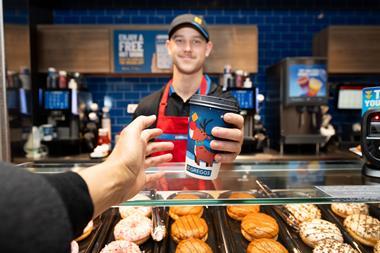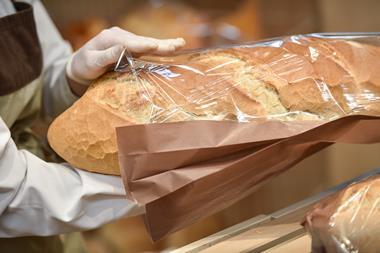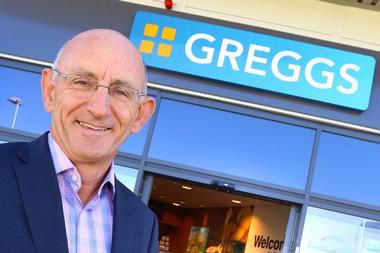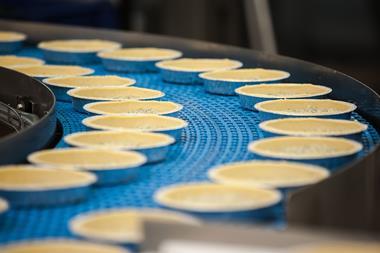Bakers are being forced to adapt to survive after social distancing measures transformed Britain’s trading landscape overnight.
With many major retail and café chains closing their doors, and some consumers either unable or unwilling to shop in supermarkets, bakeries are redefining their role within their local communities.
Cooplands, which usually operates around 170 sites, has closed more than 50 town centre and city shops to focus on neighbourhood shops that serve the local community.
“As our world gets smaller for a while, and now the country is in lockdown for three weeks at least, the local neighbourhood bakers will play an even more critical part in community support,” said CEO Belinda Youngs. “We also contacting local care homes, retirement homes and doctors’ surgeries to deliver bread for them.”
The business has since launched a food care packages service, delivering packs of essentials such as eggs, butter, meat and vegetables.
Another northern business, Seasons Bakery in North Yorkshire, lost almost half its trade due to social distancing measures, but is now baking more bread than ever before. See full story here.
Like Seasons Bakery, Surrey-based Bachmanns Patisserie has leveraged its good relationship with suppliers to adapt its business.
Bachmanns, which has shops in Thames Ditton and Weybridge, is a retail-only operation after exiting wholesale some time ago.
Owner Chris Bachmann has managed to maintain retail turnover by offering a wider range of goods than usual, and is operating a strict ‘one in one out’ policy in the shops to ensure staff and customer safety.
“We have a good supply of essentials like flour, sugar, yeast, butter and eggs, so immediately after the lockdown, we put something out saying if people needed basics like eggs they should get in touch.
“From that day, in Thames Ditton we’ve been constantly busy with people coming through the shop to get a little something and then buying other stuff as well. We put a strict limit on it, such as a maximum of 500g of butter or two kilos of flour.”
Overnight, the celebration cake business went completely because no one’s having weddings or parties
There have been big changes in Bachmanns’ bakery product mix following the lockdown.
“Overnight, the celebration cake business went completely because no one’s having weddings or parties – but individual products and smaller cakes are doing very well. Previously, we made modest quantities of bread, but we are now doing four or five times as much.”
Sales in Bachmanns’ Thames Ditton shop were at normal levels, if not a little better, he added. Weybridge was a slower start but, now word had got around, it was trading close to normal levels
One potential difficulty was the supply chain, said Bachmann.
“Because we are small, we are potentially a little bit vulnerable as supermarkets have hoovered up a lot of product. But our grocer, flour and dairy suppliers are family firms and we’ve all seen that if we’re not careful and don’t support each other, there will be nothing left but the big supermarkets.”
Business of all sizes have made changes to production schedules in recent weeks, with major bread brands focusing only on core SKUs.
Dina Foods in Park Royal, London, has seen a drop in foodservice demand, while its bakery orders have soared. Consequently, it has moved staff from production of falafel and houmous to its bakery operation.
In arguably the most extreme example of industry adaption, ingredients supplier Macphie has partnered with Loch Lomond Distillery to create a hand sanitiser for frontline care services. The distillery is blending ingredients supplied by Macphie with its own alcohol, before Macphie bottles and packs the final products in its North Lanarkshire production site.
































No comments yet